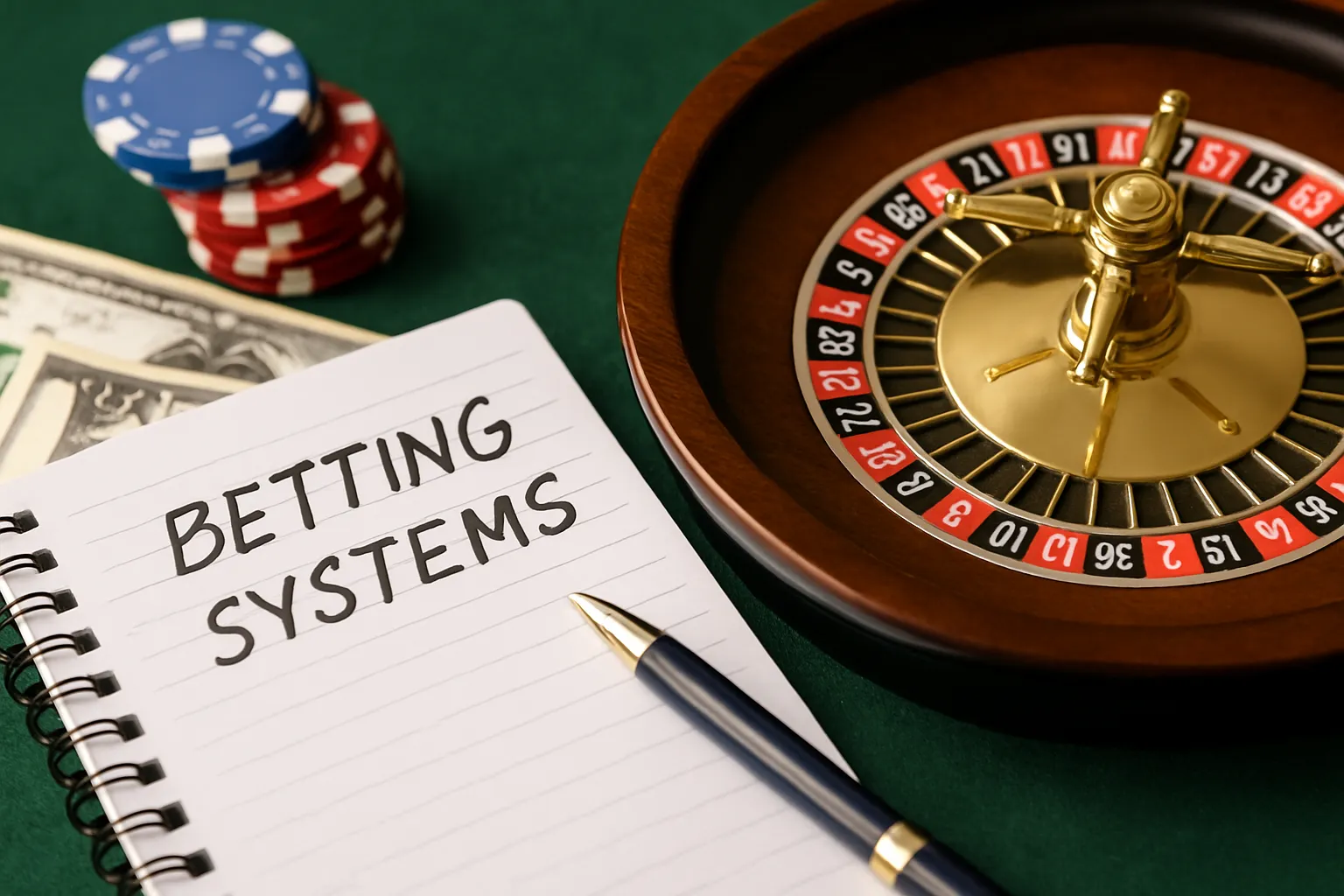Every gambler has heard of betting systems that promise to tilt the odds in your favor. From the Martingale to Fibonacci sequences, these systems are designed to create the illusion of control in a game of chance. And for a while, many of them seem to work. Players walk away convinced they’ve cracked the code. But then, almost inevitably, the strategy collapses. So why does this happen?
As someone who has spent years analyzing betting patterns, I can tell you that the answer lies in understanding probability, casino safeguards, and human psychology. Betting systems can be fun, but they’re not loopholes in the house edge. Let’s break down why they succeed short-term and fail long-term.
The Seductive Logic of Betting Systems
The biggest reason betting systems feel effective is that they appeal to common sense. Take the Martingale system: you double your bet after every loss, so the first win recovers all losses plus a profit. On paper, it looks foolproof. And in short sessions, it often works exactly as promised.
The problem is hidden in plain sight. Betting systems rely on the assumption of infinite bankrolls and no betting limits. In reality, casinos impose table limits, and players face financial constraints. This is why experienced gamblers often explore safer options such as £1 deposit casinos, where experimenting with strategies can feel less risky without risking significant sums.
Betting systems thrive on streaks, but when an unusually long losing streak happens — and it eventually will — the system crashes. What seemed like a safe formula turns into a devastating loss.
The Illusion of Short-Term Success
Most systems are tested by players in short bursts. When you play for an hour and walk away ahead, it’s tempting to believe the system works. This is why so many testimonials claim victory. But short-term variance is deceptive. The law of large numbers means that over time, the true house edge asserts itself.
If a roulette wheel has a 2.7% house edge, no betting system can change that. Over thousands of spins, the casino will always reclaim its advantage, regardless of how clever the system appears.
Table Limits: The Invisible Wall
Casinos are not naïve. They know the psychological draw of betting systems and have structured their tables to counter them. Table limits are the silent barrier that prevent systems like Martingale from working.
For example, if you start betting at £5 and double after each loss, a losing streak of 10 spins requires a bet of £5,120. Most tables won’t even allow it. Even if they did, very few bankrolls can handle that kind of escalation. The system fails, not because the math is wrong, but because reality sets boundaries.
Human Psychology and Risk Perception
Betting systems also exploit how our brains process risk. Humans are wired to see patterns in randomness. When we lose several times in a row, we believe a win is “due.” Systems like Martingale reinforce this bias by convincing us that persistence will eventually pay off.
This mindset can be dangerous because it fuels overconfidence. Players often push past their comfort zones, chasing the illusion of control. When the inevitable losing streak arrives, the crash is both financial and emotional.
Real-World Example: The Martingale Crash
A close friend of mine once tried the Martingale system on roulette, starting with £10 bets. For hours, it worked beautifully — small wins stacked up, and he felt invincible. But late in the night, he hit a streak of red that lasted 11 spins. His bets escalated to over £20,000, well past the table limit. He walked away with nothing, convinced the casino had “cheated.” In truth, the math had simply caught up with him.
Why Systems Work in Theory but Fail in Practice
The fundamental flaw of betting systems is that they don’t change probabilities. They manipulate bet size, not outcomes. A roulette wheel doesn’t care whether you’ve lost ten times in a row; the odds remain the same on the next spin. Systems only mask the house edge temporarily.
This is why professional gamblers rarely rely on betting systems alone. Instead, they focus on bankroll management, promotions, and game selection — areas where players have more genuine control.
Smarter Approaches to Gambling
If you enjoy experimenting with betting systems, treat them as entertainment, not as financial strategies. Set strict loss limits, know the table rules, and never believe the myth of a “foolproof” approach.
More importantly, shift your focus to aspects of gambling that genuinely improve your experience. Understanding bonus terms, comparing house edges, and exploring low-risk entry points like £1 deposit casinos can make a significant difference. These approaches won’t beat the odds, but they can maximize your enjoyment and stretch your playtime responsibly.
Final Thoughts
Betting systems are appealing because they give players the illusion of control. In the short term, they often appear to deliver results, fueling the belief that they work. But the truth is that over time, mathematics, table limits, and human psychology guarantee their downfall.
If you’re going to use a betting system, use it for fun — not profit. Always remember that the house edge is constant, and no strategy can rewrite probability. With awareness and discipline, you can enjoy the ride without falling into the trap of believing in a miracle system.








